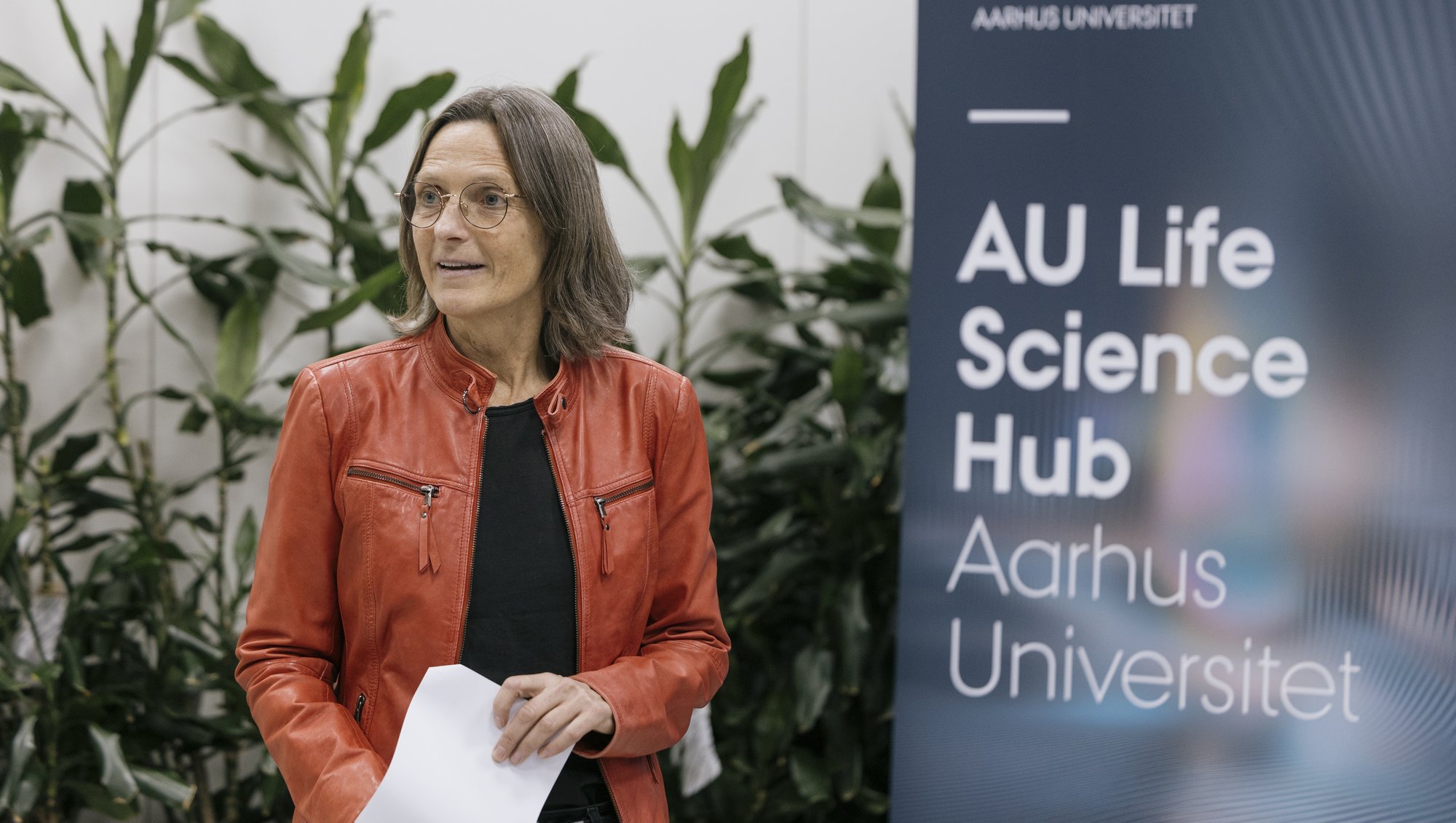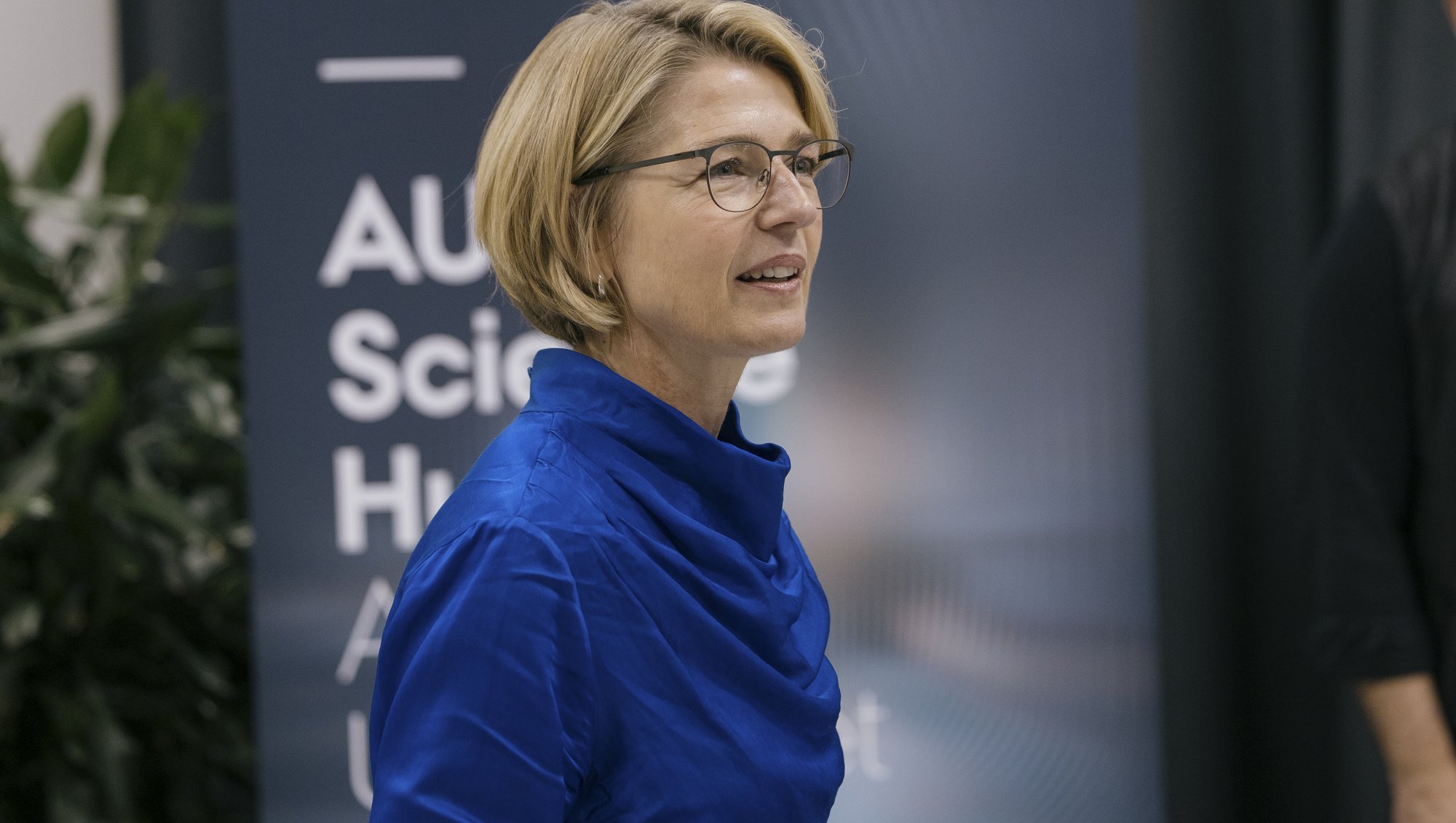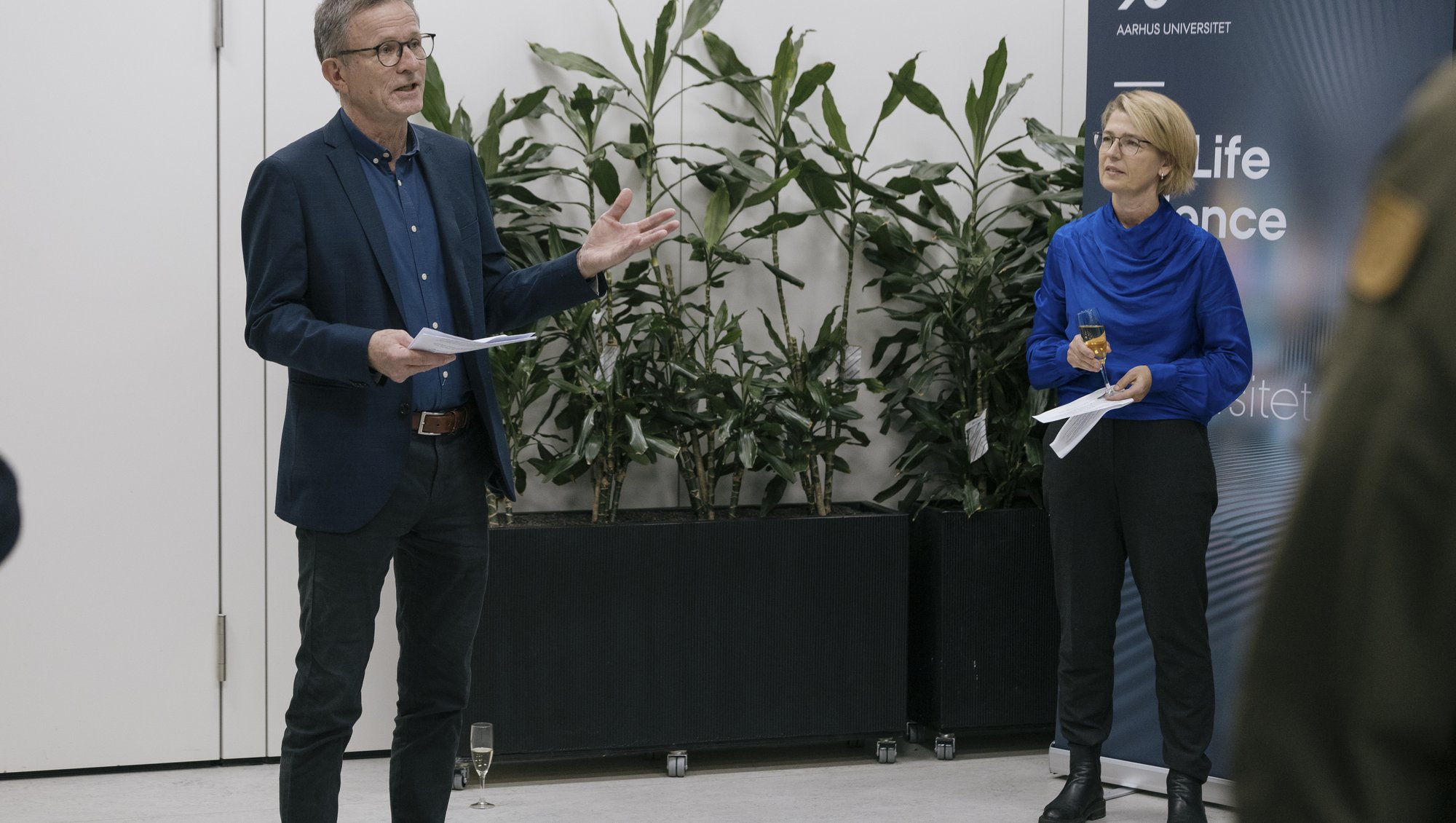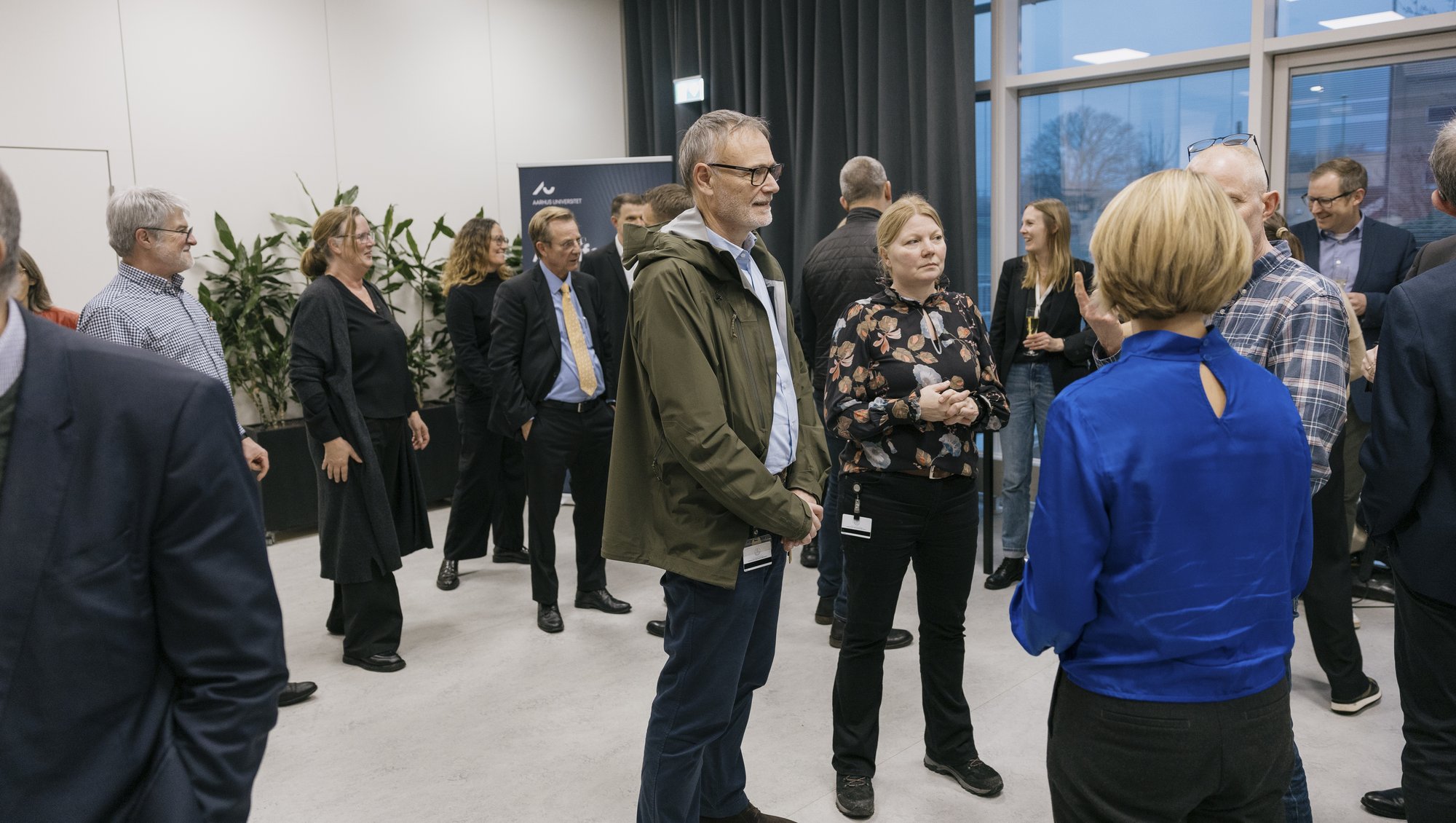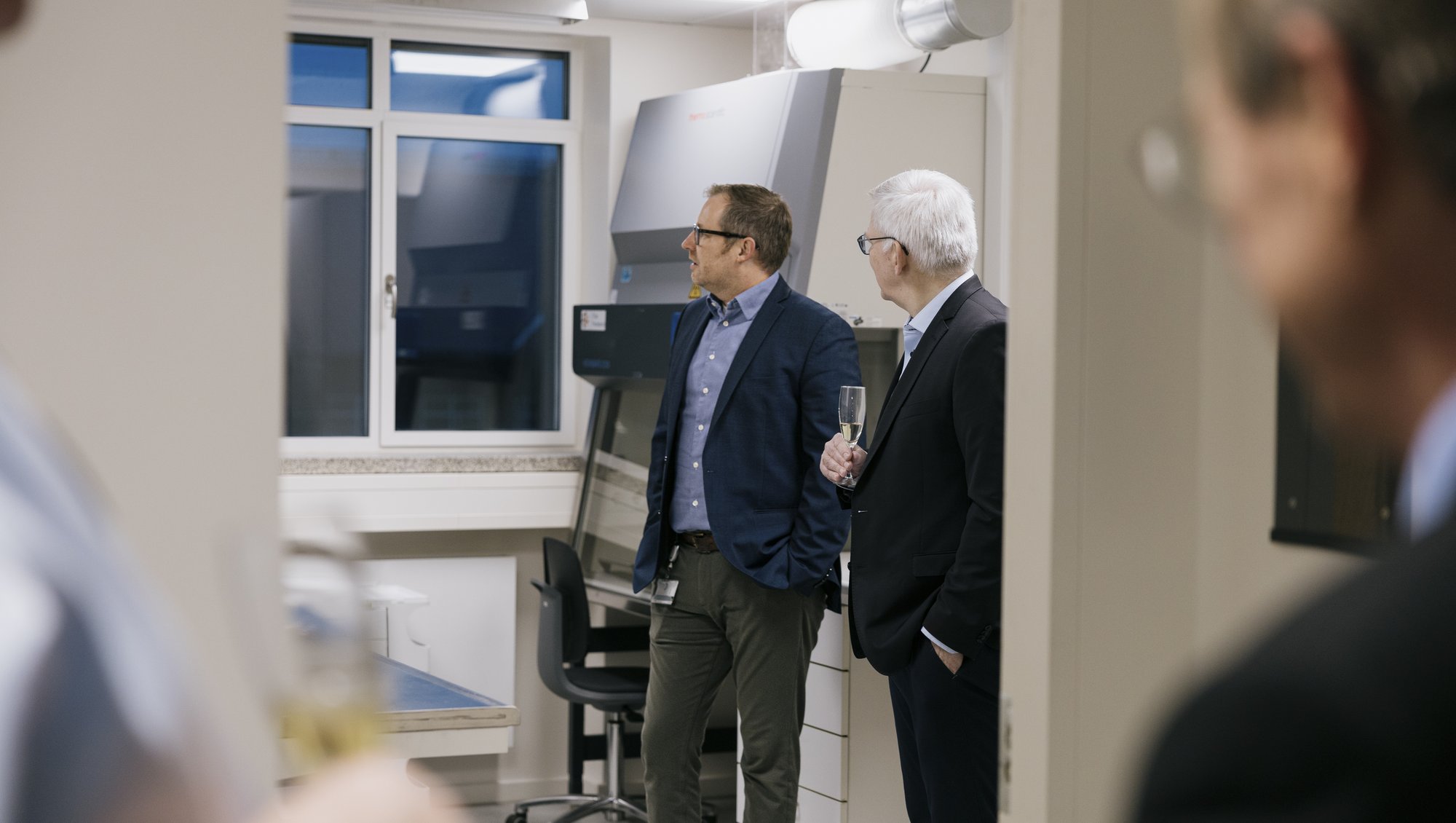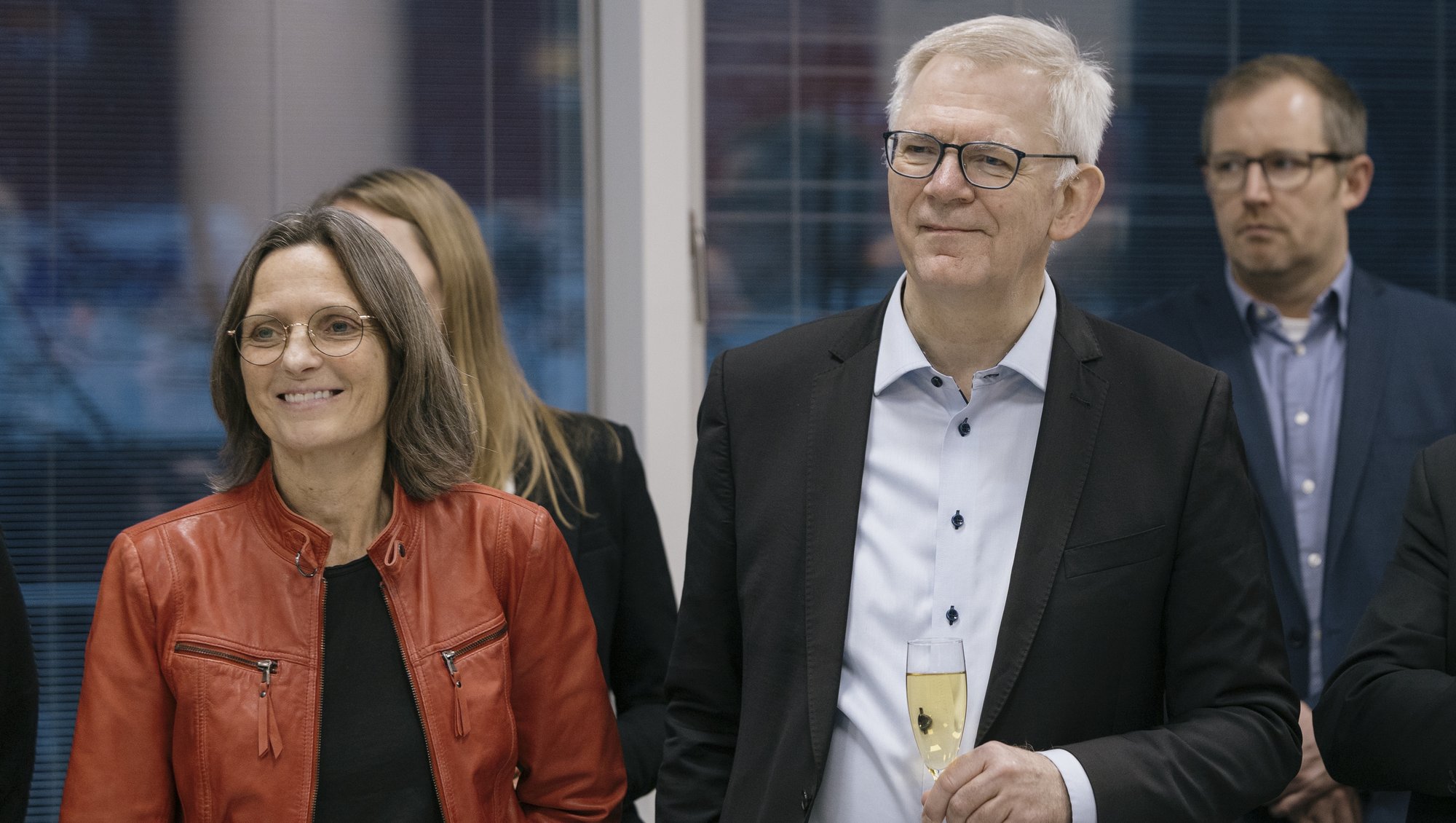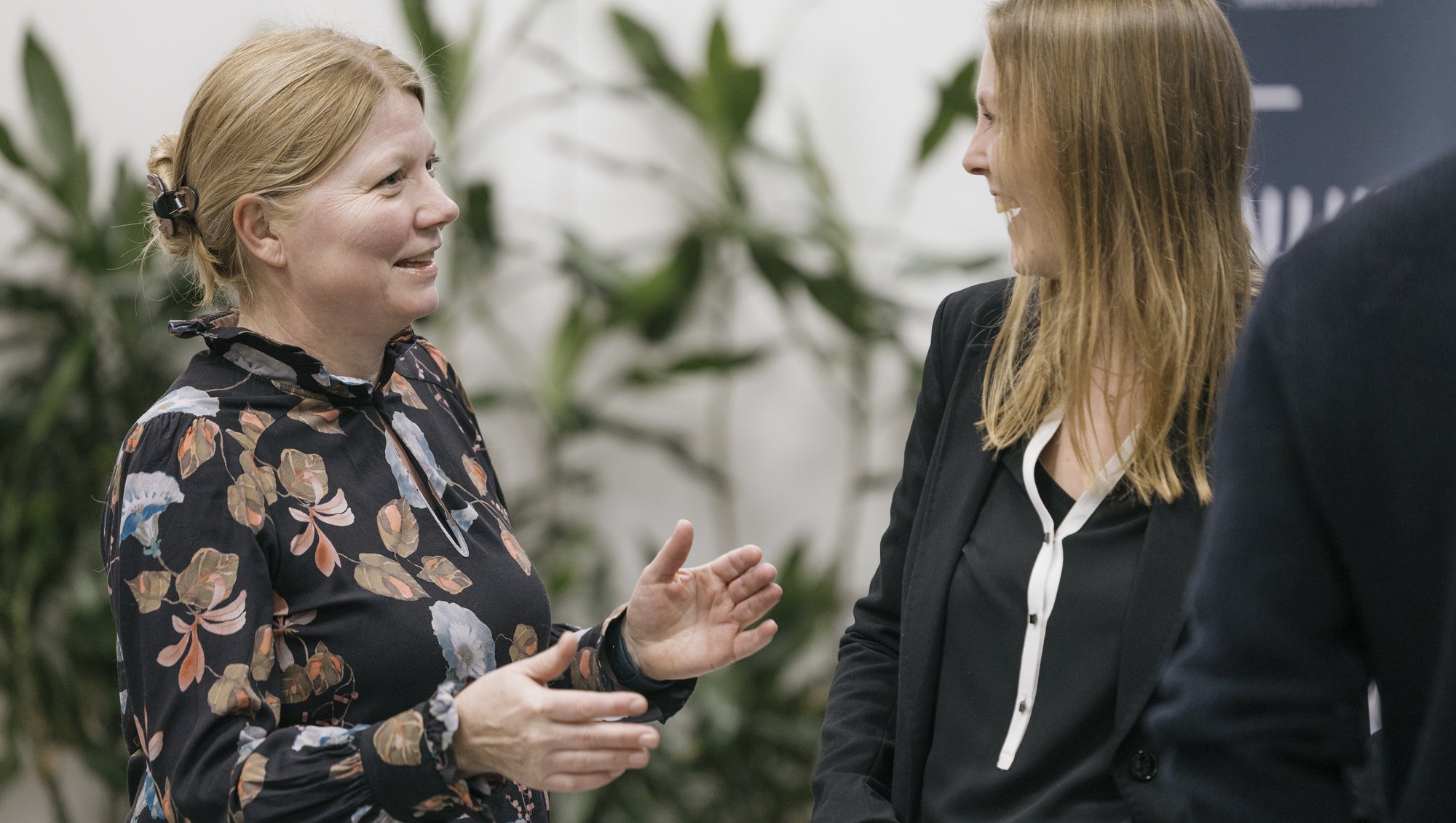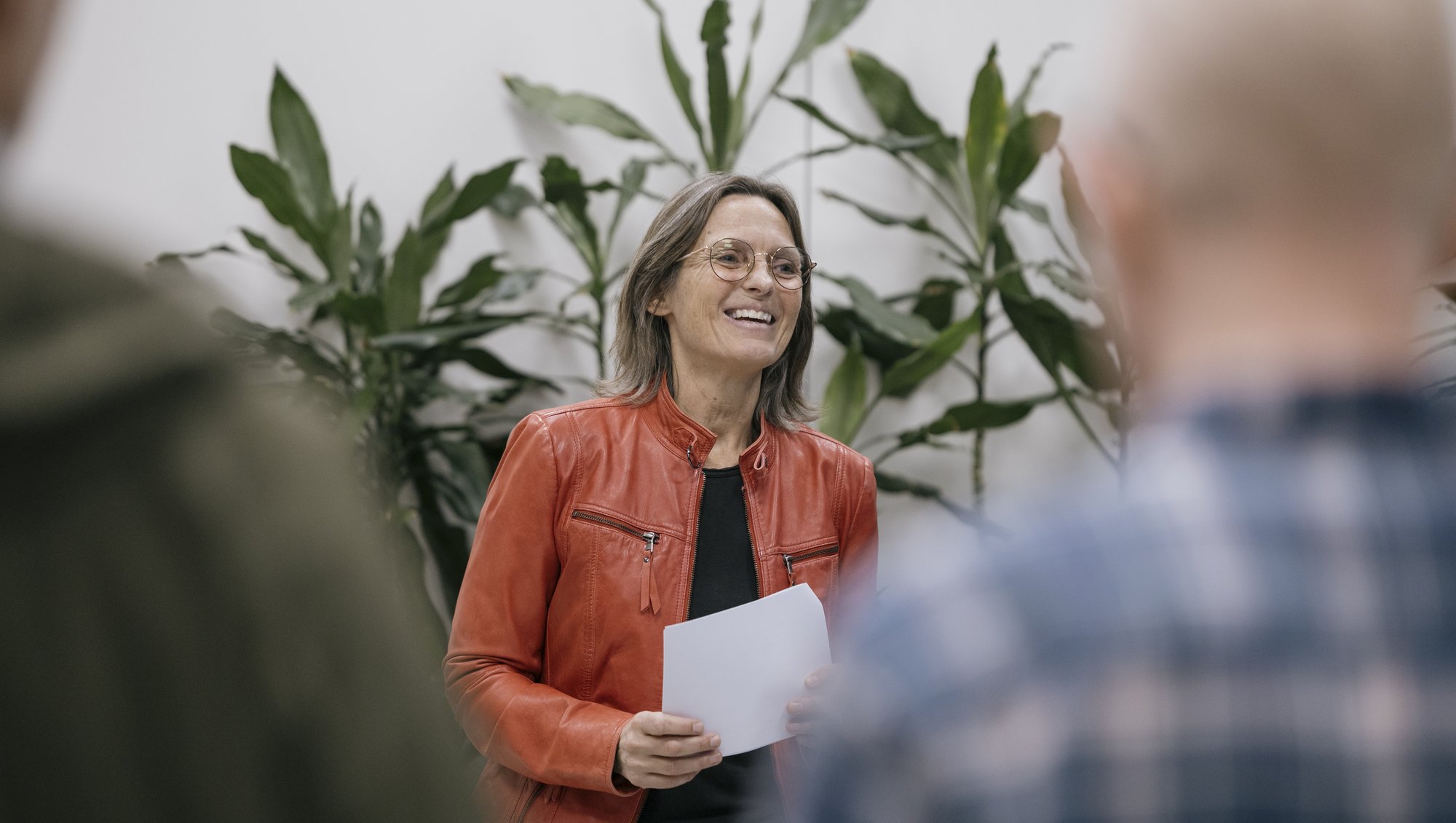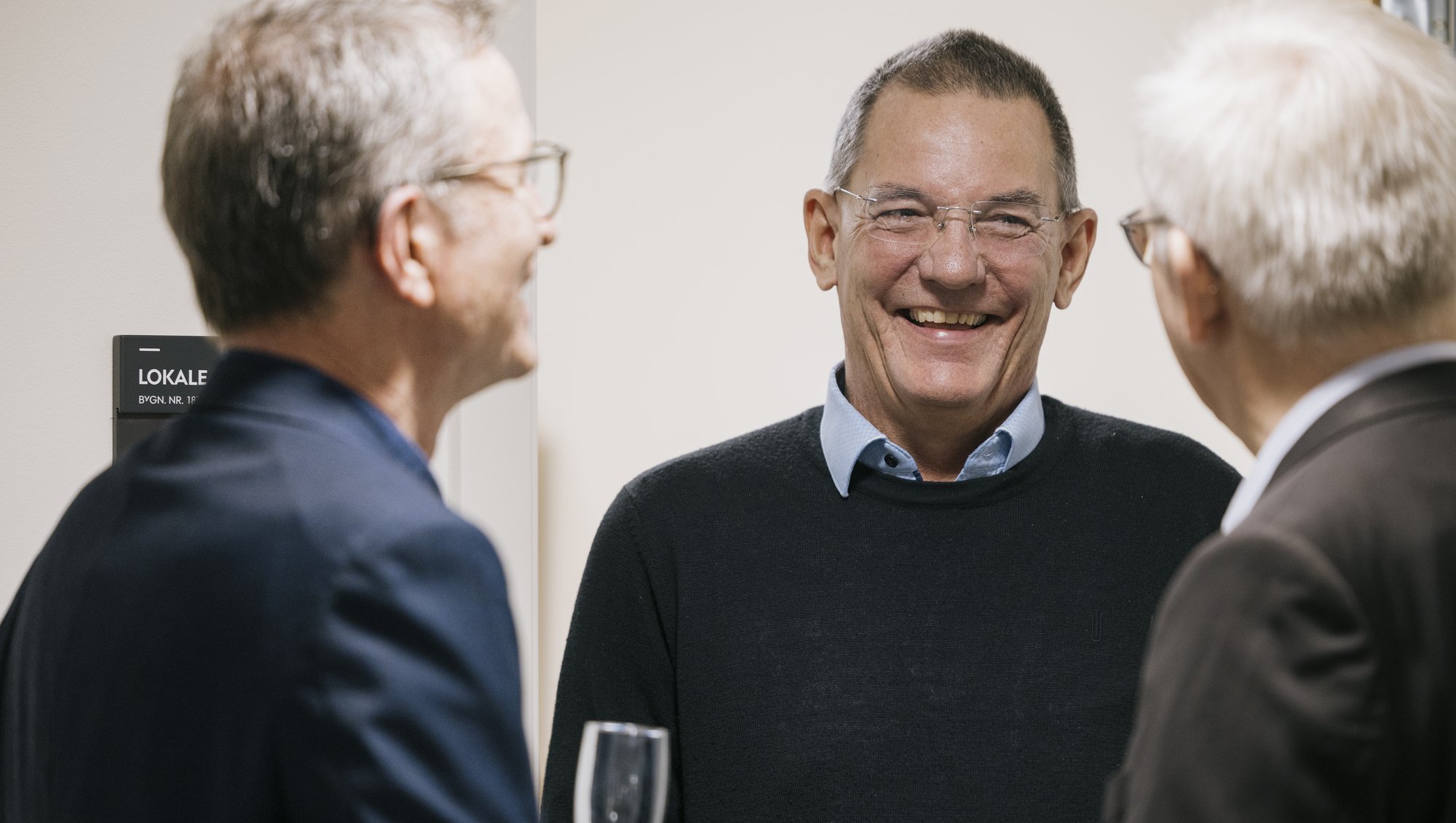AU Life Science Hub officially open for start-ups
With state-of-the-art laboratories, office spaces, access to core facilities, and business advisory services through The Kitchen, Aarhus University’s new Life Science Hub – designed to help companies move from idea to realisation – is now officially open. See all the photos from the opening here.
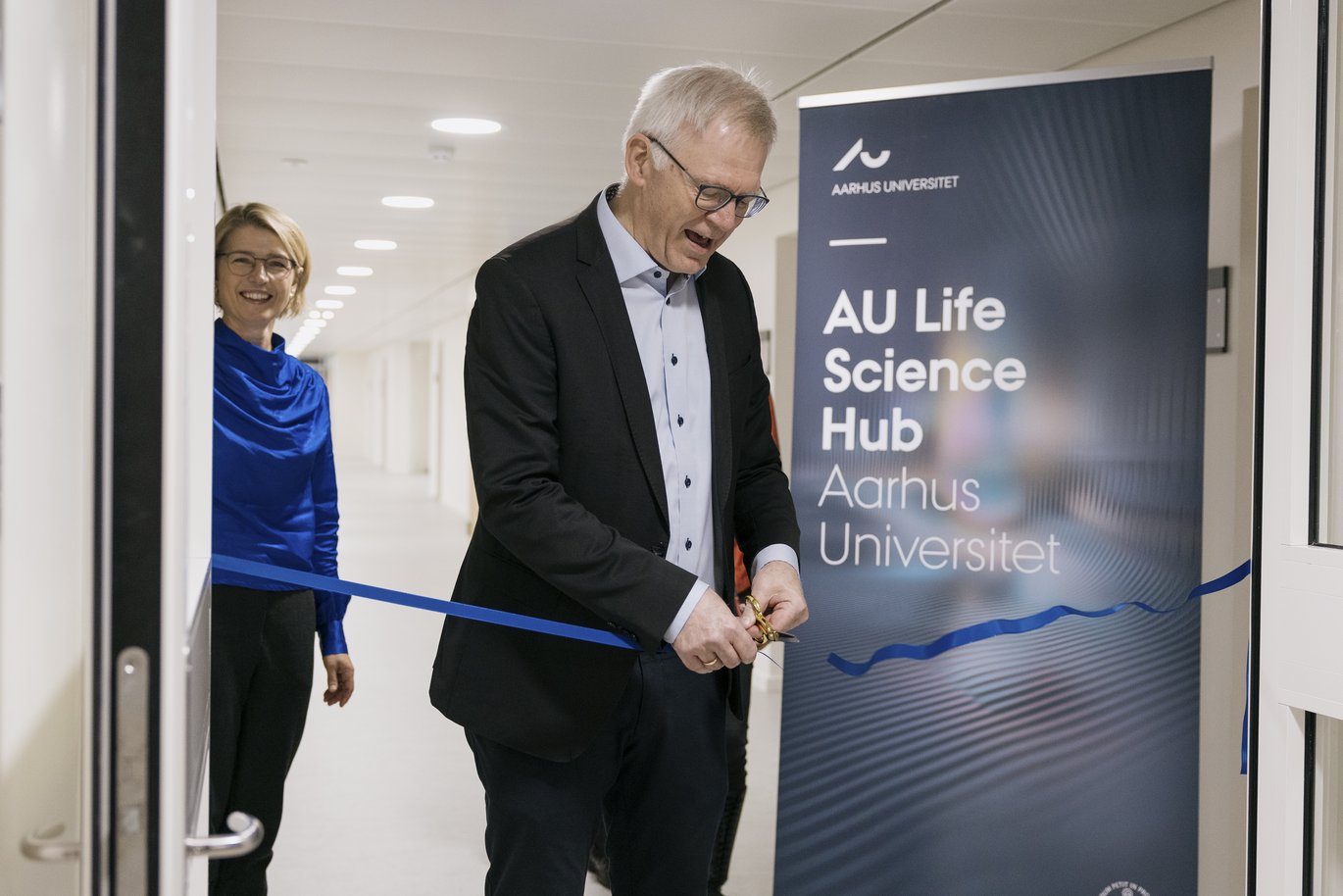
Maybe it’s not immediately obvious when you zip past on Nørrebrogade or Ringgaden, but behind the walls of Aarhus University, some of the most groundbreaking and innovative research breakthroughs in life sciences are taking place. However, much of this research and these breakthroughs remain hidden behind those walls because the startup phase for life science companies is both costly, time-consuming, and challenging.
The ambition behind the AU Life Science Hub is to make the path from knowledge to business shorter and easier for researchers at Aarhus University. On Wednesday, 18 December, the hub was inaugurated when Rector Brian Bech Nielsen took up the golden scissors, cut the blue ribbon, and officially opened the doors to newly established and emerging companies.
At the AU Life Science Hub, they'll have access to 600 square metres of facilities, including offices, six laboratories, an electronics and mechanics workshop, core facilities, and support for business development. All housed at the Department of Molecular Biology and Genetics, right in the heart of the university campus – a location that ensures close proximity to the academic environments and peers.
“There is enormous potential”
The world-class research conducted at Aarhus University is evidenced by publications in leading international scientific journals. It is vital that we become better at disseminating this research globally, said Dean Anne-Mette Hvas in her speech at the opening:
“Our research can and must also contribute to greater growth, welfare, and development. The opening of the hub is a visionary, generous, and important step towards creating the framework for our researchers to better translate research into, for example, new medicines and improved health solutions.”
Anne-Mette Hvas also emphasised that the AU Life Science Hub is intended to encompass more than just health research. She highlighted that the hub has been realised thanks to strong collaboration across the university, including with the university leadership, the Faculty of Natural Sciences, and the Business and Innovation division.
Among the speakers at the opening was also the Director of Business and Innovation, Lone Ryg Olsen, who stressed in her speech that “if you can, you should.”
“Innovation is something new that creates value. And that is something we excel at here at Aarhus University. Therefore, we are also obligated to support this strength and help our entrepreneurs realise and expand the value of their knowledge and businesses.”
And there are certainly potential tenants within the research environments, according to Head of Department of Molecular Biology and Genetics, Erik Østergaard Jensen, who will lead the hub’s operations:
“There is enormous potential for prospective entrepreneurs, but it can be a long road from an idea to proof-of-concept in the life sciences. At the AU Life Science Hub, we provide advanced equipment, laboratories, and a simple, transparent process. Everyone has the opportunity to gain access, and it’s easy to understand what you get for the cost.”
The first companies have already begun to move into the AU Life Science Hub, but there is still room for more. For more information or a tour of the facilities, contact Senior Consultant Jesper Friis Mortensen at Business and Innovation.
The opening of the AU Life Science Hub was celebrated with speeches and a guided tour
What Does AU Life Science Hub Offer?
- Modern Facilities: 600 m² of newly renovated offices and laboratories located at the Department of Molecular Biology and Genetics.
- Advanced Laboratories: Six laboratories, including three cell laboratories and an equipment room.
- Access to Specialised Equipment and Facilities: Researchers gain access to resources such as an electronics and mechanics workshop, mouse facilities, core facilities at the department, and in-house liquid nitrogen.
- Office Area: Modern offices, including technical and administrative support for staff.
- Close Collaboration: Located near faculty academic environments and The Kitchen, which offers support for business development, including commercialisation and intellectual property.
Contact
Special Consultant Jesper Friis Mortensen
Aarhus University, Entreprise and Innovation
Telephone: +45 23 23 41 45
Email: jfm@au.dk
This text is based on machine translation
